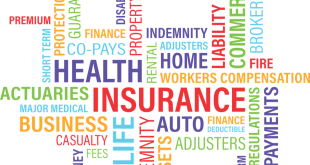A payday loan is a type of short-term borrowing where an individual can obtain quick cash to cover unexpected expenses or bridge a gap until their next paycheck. Despite being a convenient source of immediate funds, payday loans are often associated with high costs and can lead to a cycle of debt if not managed properly.

What Are Payday Loans?
Short-term loans are small, unsecured loans that are typically due on the borrower’s next payday. They go by the names of check advance loans and cash advance loans as well. The process involves the borrower writing a post-dated check for the loan amount plus fees, which the lender will cash on the due date. If the borrower cannot repay the loan in time, they may have the option to roll over the loan into a new one with additional fees.
How Do Short-term Loans Work?
To obtain a short-term, borrowers must provide proof of income, a bank account, and valid identification. Credit checks are not usually part of the application process, making payday loans accessible to many people, who might not qualify for traditional loans.
Once approved, borrowers receive the funds in cash, by check, or directly deposited into their bank account. On the due date, the lender cashes the check or withdraws the loan amount plus fees from the borrower’s account.
Interest Rates and Fees
Paycheck loan costs are the most contentious feature of the product. Interest rates can be exceedingly high, with annual percentage rates (APR) reaching several hundred percent. For example, a two-week loan for $100 can come with a fee of $15, which equates to an APR of almost 400%
Advantages of Cash Advance Loans
Quick Access to cash
The quick access to funds that short-term loans provide is one of their main advantages. In many cases, the process takes just a few minutes, and the money is available either the same day or the next business day.
Fewer Requirements
Compared to traditional loans, payday loans have fewer requirements. Borrowers with poor credit history or no credit can still get a loan.
Unsecured Loan
Since short-term loans do not require collateral, borrowers don’t risk losing personal assets if they default on the loan.
Disadvantages of Payday Loans
High Cost
The high fees and interest rates make Short-term loans an expensive form of borrowing, especially if the loan is rolled over multiple times.
Debt Trap
Borrowers who cannot repay their loan on time may fall into a debt trap, continually rolling over the loan and accumulating more fees and interest.
Short Repayment Period
The short repayment period can make it difficult for borrowers to gather the necessary funds in time, leading to rollovers and additional charges.
Alternative to Payday Loans
It’s wise to look into choices before considering a payday loan:
- Personal Loans: These come with lower interest rates and longer repayment terms.
- Credit Cards: It has lower APRs than payday loans when utilized sensibly.
- Payment Plans: negotiating with creditors for extended payment plans can avoid the need for a payday loan
- Emergency Funds: Setting up an emergency fund might help you avoid payday loans by acting as a buffer against unexpected expenses.
- Community Assistance: Local community organizations may offer assistance with urgent expenses like rent or utilities.
Legal and regulatory Aspects
Payday lending is regulated at the state level in the United States, with some states banning short-term loans altogether with others imposing restrictions on fees, interest rates, and the number of loans a borrower can take out.
Best Practices When Considering a Payday Loan
If you decide to take a payday loan, consider the following best practices:
- Borrow Only What You Need: To minimize fees and interest, only borrow the amount you need
- Read the Fine Print: Before taking out a loan, be sure you understand all the terms and circumstances.
- Plan for Repayment: Ensure you have a plan to pay back the loan on time to avoid additional charges.
- Shop Around: To get the best price, compare conditions and rates offered by various lenders.
- Consider Alternatives: Always explore other financial options before settling on a payday loan.
Conclusion
Short-term loans can serve as a lifeline during financial emergencies but come with significant risks. High costs, potential debt traps, and short repayment periods are considerable drawbacks. It’s crucial to understand all aspects of payday loans and consider alternatives before taking one. Responsible borrowing and thorough consideration of all available options can prevent the negative consequences associated with payday loans.
FAQs
Question: What Is a Payday Loan?
A short-term loan is a sort of short-term credit in which a borrower takes out a tiny loan at an extremely high interest rate. In exchange for cash, the borrower usually submits a post-dated personal check for the desired loan amount plus a charge. The check is retained by the lender, who cashs it on the prearranged date—typically the borrower’s subsequent payday.
Question: Can I Take Out a Payday Loan for How Much?
The amount you can borrow with a payday loan varies depending on several factors, including your income and the laws in your state. Typically, payday loans range from $50 to $1,000. However, some states have caps on the maximum amount you can borrow.
Question: What Are the Requirements to Get a Payday Loan?
To enable for a payday loan, you must:
1. Be at least 18 years old
2. Have a valid ID
3. Give proof of a steady source of income.
4. Have an active checking account
5. Provide a valid phone number
Question: Are Payday Loans Expensive?
Payday loans are known for having higher APRs than other forms of credit. This means that they can be expensive, especially if the loan is not repaid on time. Borrowers should be aware of all fees and the total cost before taking out a payday loan.
Question: What Happens If I can’t Repay Payday Loan on time?
If your state permits it, you may be able to renew or rollover your short-term loan if you are unable to pay it back by the due date. However, doing so may result in additional costs and raise the overall cost of the loan. Some lenders offer extended payment plans at no extra cost. It’s critical to contact your lender as soon as possible to discuss your options to avoid defaulting on the loan.
 Tox You It's all about earning solutions, News, Entertainment
Tox You It's all about earning solutions, News, Entertainment



